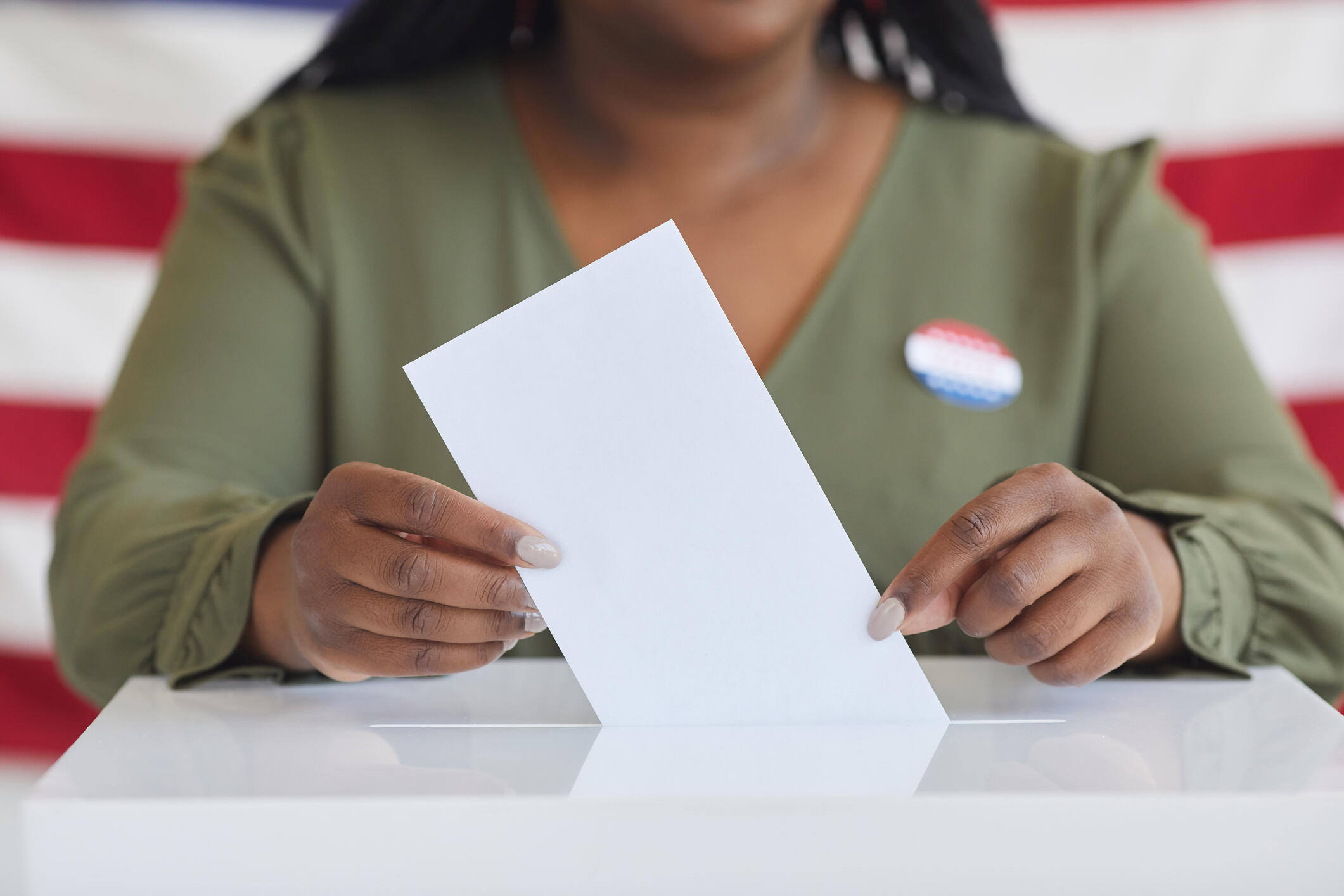
Oct. 16, 2024
In race and gender, Kamala Harris charts a historic and challenging course, VCU professor says
Share this story
Kamala Harris is making history as the first Black woman to be a major-party presidential nominee in the U.S. With Election Day just weeks away, the race between her and Republican nominee Donald Trump is exceptionally close, according to most polls.
Jatia Wrighten, Ph.D., an assistant professor of political science in Virginia Commonwealth University's College of Humanities and Sciences, specializes in research around Black women in politics and their leadership. She shared insight on how race and gender may influence the Democratic nominee’s campaign.
Harris is a woman and a person of color – what does it mean to have to navigate both identities in the predominantly white, male world of American politics?
It means she is overburdened and unfairly tasked with navigating obstacles in her way wholly based on her race and gender. But judging by her successes as a prosecutor, a senator and vice president, she is no stranger to navigating the terrain and breaking glass ceilings.
Is that terrain, or its timing, different now than before?

It’s hard to capture my thoughts during this time as someone who studies Black women in politics but who is also a Black woman. On one hand, it’s an interesting and exciting time – the political climate has been tumultuous to say the least. But it would seem that it created a space for the possibility of a Black woman to be a real contender for the highest office in the United States. It would suggest that voters are open to change and progression.
Which begs the question: Why now? When putting it in perspective, Shirley Chisholm was the first Black woman who campaigned for the Democratic presidential nomination in 1972. It took 52 years for a Black woman to become a viable option for the American presidency. This fact brings up issues of racism and sexism that Black women have to face to gain access to opportunities.
How do those factors play out?
Race and gender play a primary role in this presidential race. All the conversation surrounding Harris and her achievements (or lack thereof) are “colored” by her race and gender. Specifically, we ask this question about her race and gender. If she were a white man (Trump), we don’t ask questions about how their race or gender will affect their ability to lead or what policies they will pass, or who their constituents are – even though a person’s identity absolutely affects how they see the world and how they run for office, and what they do once elected.
Because white and male are thought of as the default, we rarely ask questions about how their race and gender influence how they see the world. It is a glaring blind spot in how we cover candidates.
How does Harris’ campaign tie into Barack Obama’s in 2008 and Hillary Clinton’s in 2016?
I would say the biggest difference is that for the first time, we have a person who experiences a duality of identity, meaning she has to confront both her gender and her race simultaneously. Barack Obama, although Black, is a man, and Hillary Clinton, although a woman, is white. In that way Harris has to campaign differently – she has to appeal to both Black people and women, and she has a competitor who employs racist rhetoric regularly. So Harris is forced to answer and engage with hateful and ignorant stereotypes that have plagued Black women for centuries.
An NAACP poll in September found that more than a quarter of Black men under 50 are supporting Trump over Harris. How significant is this?
This is not a realignment of political constituencies. Regardless of the Democratic presidential candidate, Black men do support Republican candidates. They are usually not a large percentage of the Black population, as for the most part, Black people are steadfast Democrats. However, I think that it’s important to keep in mind that Black voters are not a monolith, and we should expect variation in this voter bloc.
Subscribe to VCU News
Subscribe to VCU News at newsletter.vcu.edu and receive a selection of stories, videos, photos, news clips and event listings in your inbox.










